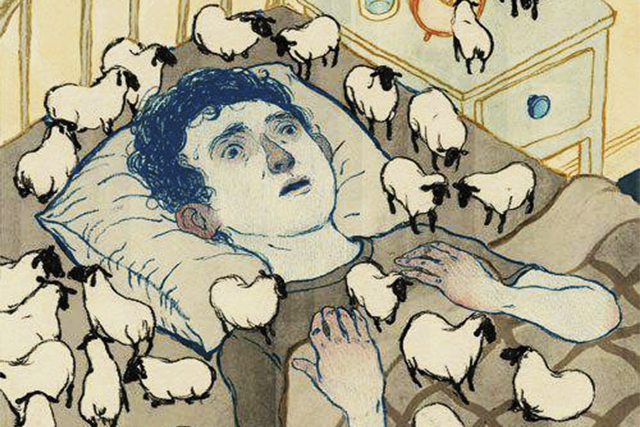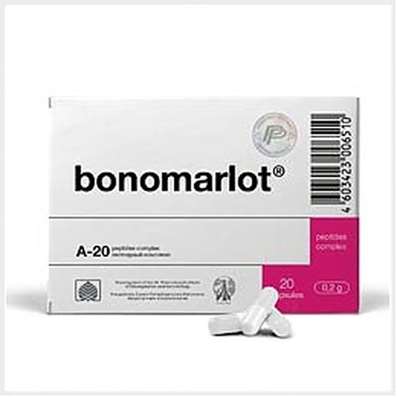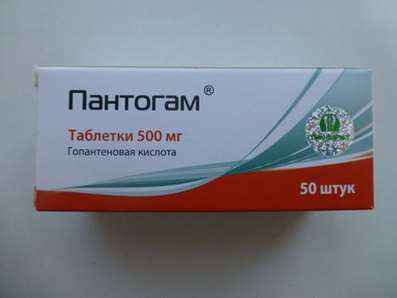Hypnotics
22 Oct 2016
Somnologist talks about the therapeutic methods to improve sleep, hypnotics generations and efficacy of medicinal herbs.
It is not always the methods of cognitive-behavioral therapy or use of sleep hygiene can improve the patient's sleep with chronic insomnia. Enhance the effect of these methods is possible while prescribing. It is also possible the use of drugs outside of cognitive-behavioral therapy. We are talking primarily about the sleeping pills, was originally intended to improve sleep.
Barbiturates
For the first generation of sleeping pills include barbituric acid derivatives, the second - benzodiazepines, the third generation - the so-called Z-drugs, which are non-benzodiazepine structure, and the fourth generation - melatonergic drugs. Recently on the market in the US went out hypnotic drug is already the fifth generation - suvoreksant having a completely different mechanism of action compared to all previous drugs. It blocks orexin receptors in specific brain system that is involved in maintaining brain activity and resistance to sleep.
The preparation of barbituric acid was synthesized veronal even Adolf Bayer in 1864. In further studies, it was found that barbiturates have a positive effect on the overall condition of the nervous system, reduce anxiety, seizures affect and promote muscle relaxation. It has also been shown to speed up falling asleep and sleep deepens. Therefore, these products are actively used for the treatment of sleep disorders, and some even being actively used sleeping pills also are composed of barbituric acid. For example, "Valocordin" at high doses contains enough barbituric acid. Or drug "Reladorm", which is half cyclobarbital.
But drugs barbituric acid had a lot of shortcomings, since in their application alters the normal sleep pattern. Indeed, they allow a person to fall asleep faster, but this dream was defective, because the vast stage of deep REM sleep, there was only "average" sleep - the second stage. And also suppresses REM sleep - dreaming. That is, over time people began to sleep longer, but the quality of his sleep suffered and did not give him the satisfaction.
Benzodiazepines
In 1955, that is actually 100 years after the first barbiturate, was synthesized the first benzodiazepine drug chlordiazepoxide structure. These drugs have less side effects compared to barbiturates, although comparable had positive effects. The same applies to sleep: benzodiazepines accelerated the sleep time, sleep time, elongation and reduction of the number of awakenings.
However, it soon became clear that benzodiazepines still suppress deep sleep stage and sleep with dreams, though not to the same extent as preparations barbituric acid. Another important advantage of benzodiazepine drugs for use as a hypnotic was that many of them have a short enough half-life compared to barbiturates. They had time to almost completely withdraw from the body in the morning, when the man of their sedative effect becomes unnecessary.
All barbituric acid preparations have a very long half-life - to several days. And so the man who took barbiturates to sleep, morning, afternoon and evening will be even more to feel its effects, since this drug is metabolized very slowly in the body. Therefore, a more comfortable benzodiazepines have been actively used in the treatment of sleep disorders and is used to this day.
Z-drugs
They were replaced by a new generation hypnotics - the so-called Z-drugs. They are called so unusual, because in fact in the pharmaceutical market there are only three types of sleeping pills, and all their names start with the letter s "Zolpidem", "Zopiclone", "Zaleplon".
At Z-drugs were a lot of advantages in comparison with classical benzodiazepines. It has been shown that they have no such effect on the structure of sleep, especially not suppress deep sleep. At the same time they provide and the acceleration of falling asleep, and sleep time extension. That is, the Z-drugs have a positive effect on the quantitative indices of sleep, while not degrade the quality. These drugs have less potential for the development of habituation and addiction than older benzodiazepine drugs, especially barbiturates. At Z-drugs was also a smaller half-life: they have time to withdraw from the body until the morning, that man did not feel the effects of their reception during office hours.
Z-drugs are fundamentally different in the chemical structure of the substance. Each of them has a unique structure, but combines them that they act on a particular area so-called the GABA A receptor complex which is responsible for the induction of sleep. This drugs act only on the receptor site that is "responsible" for the dream - the alpha-1 subunit - and no effect on the neighboring responsible for the other effects on the nervous system. Benzodiazepines and barbiturates problem was that they were "beaten on the areas" and stimulated once all subtypes of GABA receptors - those responsible for the hypnotic effect, sedative, anxiolytic, anticonvulsant, and amnestic effects of these drugs. Upon receipt of drugs past generations often happens that a man who had "only" to sleep, in addition received another antiepileptic, amnestic and any other action that was quite undesirable. This therapeutic redundancy present in a barbiturate and benzodiazepine drugs.
Gamma-aminobutyric acid is a universal brake neurotransmitter of the central nervous system. In conjunction with the specific receptor of the GABA in nerve cell increases hole size - a channel through which penetrate into negatively charged chloride ions. The more cells accumulate these ions, the less it reacts to other influences - it is said to be inhibited.
Z-drugs were more pure, having the minimum number of unwanted side effects than benzodiazepine and barbituric drugs, so they very quickly began to be used as hypnotics. They are called non-benzodiazepine hypnotics, because the name "benzodiazepines" due to the peculiarities of the chemical structure of the previous generation products. They all must have two rings - benzene and diazepine. Z-drugs of the formula in its rings do not have. Nevertheless they bind almost the same areas of the GABAA receptor as benzodiazepine drugs.

To improve your sleep buy Afobazol or Phenibut.
Melatonin and Insomnia
Hypnotics fourth generation are associated with fundamentally different types of receptors - receptors for melatonin. Melatonin is a rather mysterious substance. This hormone, which is released only at night. When the night is reduced light intensity, in animals and humans begins to produce the substance. It is believed that one of the most important action of melatonin blockade is the antioxidant and reproductive function. One of the adverse biological effects of this hormone is to accelerate the onset of sleep. It also affects the internal clock of our body that are responsible for translating it in day or night mode. Depending on time of day is dark or light, the body by increasing the production of melatonin gives a signal to the internal clock that it is time to activate the nervous system or, on the contrary, slow down. That is Melatonin promotes sleep onset is not a sleeping pill now, and by switching the internal clock in the night mode.
The latter, at least currently available hypnotic drug, which in 2014 was approved for use in the United States, is suvoreksant. The action of this drug is also based on a fundamentally different from the previous four generations of sleeping pills mechanism of action - blockade of one of the brain activates the system. Along with many others there are two main systems providing the level of functioning in the brain - activating and inhibitory.
In the daytime dominated by activating the system. They keep the brain awake, provide a sufficient level of attention and readiness for action (alertness). When the evening light output is reduced, accumulated so-called fatigue, increases the so-called "sleep pressure", it is already beginning to dominate the braking system. Their activity overcomes activating activity centers, and the brain is immersed in the dream state. By activating brain systems - and there are described twelve - and carry a very important, powerful system - the so-called orexin. In this system, the brain centers there is another name – Hypocretine. Scientists can not yet determine how to properly call the mediator, who is a carrier of information in the system, either hypocretin or orexin. Because the system was simultaneously described by two groups of authors who discovered the substance and named it accordingly hypocretin and orexin. No one wants to give the championship title. So through slash and is usually called the mediator - orexin / hypocretin.
It turned out orexin system is very important to maintain the level of wakefulness. What happens if you turn it off? For a person suffering from insomnia will be able to fall asleep more easily, because the brain is partially activating system "will lose support," on the part of this important and then the braking system of the brain can take advantage and finally immerse the body into sleep.
What other hypnotics other than those listed may be used in the treatment of chronic insomnia and how it justified? Popular is the use of melatonin medications - hypnotics not the fourth generation, which are powerful, specially synthesized agonists of melatonin receptor, and a synthetic analogue of the hormone melatonin. It is shown that the use of these drugs improves a little time to fall asleep and slightly increases the duration of sleep. Most drugs called melatonin hronobioticam. Such a compound word says that the active substance "work" through the internal clock, and not through the system, which regulate the cycle of "sleep - wakefulness." That is, they do not slow down, do not activate, and are the third component of this interaction - on an internal clock, which give the body more clearly understood when the day and when night. Our own hormone melatonin is produced only at night. Accordingly, if we take a tablet of melatonin during the day, then we can try to trick the internal clock that night had fallen and it is necessary to switch the system to night mode, including lower brain activity, which promotes sleep.
So uncomplicated way, of course, switch the nervous system can not sleep. However, it is shown that such assistance braking system through deception of the internal clock allows the bit to increase sleep time and reduce the time to fall asleep. Preparations melatonin is now very popular, widely used - largely due to the fact that their use is almost no side effects. Their great advantage over other sleeping pills is the so-called high safety profile, so they are often prescribed to improve sleep for older people.
"Donormil" and antihistamines
Besides preparations of melatonin as a hypnotic actively using blockers of histamine receptors, ie the means which are commonly used for allergies. Known to all "Diphenhydramine" ( "Diphenhydramine"), "Suprastin" - why these older antihistamines have a sedative effect? Because they block the passing another important brain activating system - histaminergic. This system also contributes to the brain in awake. If it weaken or off (depending on dose), the "sleepy" system gain an advantage, which is what happens when we take nonselective antihistamines older generations. This feature uses a more modern drug with hypnotic effect, which is called "doxylamine," - he selectively blocks the H1-receptor in the brain that are in histaminergic activating system. Due to this, again the opposite side in the form of braking system takes advantage dive brain to sleep.
The drug "doxylamine," the strength hypnotic action is usually weaker than classic sleeping pills. Its advantage is that it is quite accessible, that is to retrieve it using a simple recipe that can prescribe any doctor. This drug may cause side effects, especially in the elderly-related deterioration, such as glaucoma or BPH, but in real life, such side effects occur less frequently. "Donormil" does not distort the structure of sleep as it does with benzodiazepines and barbiturates, that is, allows natural sleep. An interesting feature of this drug is that it is the only sleeping pill approved for use during pregnancy.
This is due to the fact that the drug is used and nausea of pregnancy. It has been shown that the combination of "doxylamine" with vitamin B6 reduces the severity of nausea. In the United States it is actively produced and sold. Therefore, the question of whether you can or can not be removed once the appointment is shown to pregnant women. But to use it while breastfeeding is impossible.
Medicinal herbs
Preparations of medicinal herbs - how they work or do not work for the improvement of sleep? Is it possible to separate the effects of medicinal herbs products from the so-called placebo effect, when a person is waiting for a means to help him, and it helps? With regard to the effects on sleep valerian, Leonurus, chamomile, hops and so on are no placebo-controlled studies have been conducted. That is, we can not say whether these drugs are better than placebo, or to improve sleep, which tell their host people are due simply to the fact that the placebo effect works, and they get the expected.
In meta-analyzes this effect has not been proven. A meta-analysis - a study when the results of all studies taken a certain drug, summarized, processed statistically and the authors look whether there is a shift of the drug effect in a positive way. In most surveys of this kind of positive influence of valerian preparations (Valeriana most studied) in the human sleep metrics were found.
A possible positive effect on sleep herbal medicine preparations explain their sedative (soothing) effect, when reduced levels of internal stress and the person falls asleep easily. However, the placebo can also cause sedation. When a person receives a placebo, if he does not know it consciously or unconsciously expects that it should be easier (reflex). And it is an idea often comes true regardless of whether the person was given a drug or not given. It is shown that much greater effect have a "dummy" larger, red, and in the placebo injections acts more noticeable than in the tablets (no pain - no gain, as they say athletes).
In conclusion, it should be noted that, despite the apparent simplicity of the mechanisms of action of sleeping pills (some act on the braking system, the other - to activate, and others - on the internal clock), their use should be prescribed by a doctor, as a place of use of these funds is still a brain - the main control center of the body - and must be handled very carefully.

 Cart
Cart





